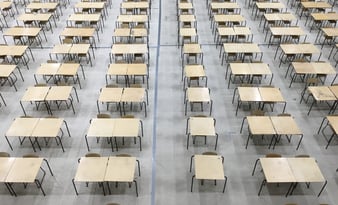Contents
- What is ISEB testing?
- Is ISEB an 11+?
- What is ISEB curriculum?
- What is the ISEB common pretest?
- Is ISEB testing available to anyone?
- Do parents get ISEB results?
ISEB is the Independent Schools Exam Board. This produces a number of exams for the private school sector. The best-known examples of these are the Common Entrance Exams. But what is Common Entrance at 11+ and at 13+? What is the ISEB Common Pre-Test? Is it the same at the 11+ exam? Confusing, isn’t it? But don’t stress. We’re here to give you a guided tour of the ISEB and all things associated with it in a matter of minutes.
What is ISEB testing?
The ISEB produces several exams but is most well-known for producing the Common Entrance Exams. These exams are used at prep schools in year 8 to assess students who want to go to some of the top independent schools at the age of 13 in the UK or abroad.🌎
The examination board is made up of heads from three associations which represent independent schools, namely the APS (Association of Prep Schools), the HMC (The Headmasters’ and Headmistresses’ Conference) and the GSA (Girls’ Schools Association).
Is ISEB an 11+?
This is a little confusing because of the similar terminology used. The 11+ is set by the LS (Learning Support), one school or a group of schools or a separate provider (like the ISEB) and is a competitive exam.
Common Entrance Exams are used only by private schools and aren’t competitive, but pupils will need a conditional offer from the school they want to attend to sit the Common Entrance at 13+. The offers are usually made by taking into account how the pupil scored in the ISEB Common pretest in year 6 or 7.
The Common Entrance at 11+ in year 6 is mainly for pupils who want to enter senior girls’ schools which are independent.
What is ISEB curriculum?
ISEB exams are generally considered to be good preparation for when the pupils come to do GCSEs or IGCSEs, and A levels in the future.
The ISEB-produced Common Entrance Exam at 13+ tests a number of subjects. The compulsory subjects:
- English
- Maths
- Science
But there are a number of other subjects pupils can choose to take at 13+. These are:
- French
- Geography
- German
- Classical Greek
- History
- Latin
- TPR (Theology, Philosophy and Religion)
- Spanish
Most senior school pupils are expected to take Geography, History, TPR and a language in addition to the core subjects. Some subjects can also offer different levels of exams. The ISEB offers practice papers as well as the syllabus for each subject.
The ISEB publishes three sets of exam papers every year: two are often used as practice papers. In June there is a common week when pupils sit the exams.
What is the ISEB common pretest?
The ISEB common pretest is taken between 10 and 12 years of age (year 6 or 7).
|
Subjects |
Maths, English, verbal reasoning non-verbal reasoning |
|
Duration |
All four tests take a total of around 2.5 hours |
|
When |
Any time between October and June |
|
Created by |
GL Assessment for ISEB |
|
Format |
Adaptive computerised test |
|
Question types |
Multiple choice |
|
Retakes? |
The pupil can take the test only once in an academic year |
|
Location |
Usually online at the pupil’s preschool. State school children can take the exam at a sitting centre or at the independent school they’re applying to. |
Not all prep schools use the ISEB Common Pre-Test so it’s important to check.
Is ISEB testing available to anyone?
The simple answer is yes. ✅ Although the vast majority of pupils who take ISEB testing are from prep schools, pupils from state schools and pupils who are home-schooled can also sit these exams. State school pupils, in particular, take the Common Entrance Exam at 11+ at the end of primary school.
Prep schools tend to prepare their students for the ISEB exams, especially when they go from prep to senior at 13+. That’s why, if your child is a state school student, we recommend investing in a tutor as they won’t receive the same level of training offered by prep schools. GoStudent tutors are experts in their field and can tailor lesson plans to suit the individual needs of your child. This will give your child confidence and familiarise them with what the tests consist of. Book your free trial lesson today.
Be careful though, as some independent schools have their own assessment and do not use any of the ISEB testing exams. ❗ It’s best to check with the school your child is going to attend.
Do parents get ISEB results?
ISEB cannot provide results to parents directly. This is because each senior independent school is in charge of marking the tests.
Pupils are given a grade from A to E for each subject but the marks for each grade can differ from school to school.
Therefore, a highly academic independent school’s pass marks are going to be higher than those of a school that welcomes a broader range of abilities.
The ISEB Common Entrance Exam is only one part of the admissions process. It is often used together with a head teacher’s report from the prep school and an interview.
So, it’s over to you to decide whether ISEB testing is for your child. Whatever kind of parent you are, knowledge is power and you should at least feel more knowledgeable now on everything ISEB-related! ⭐










